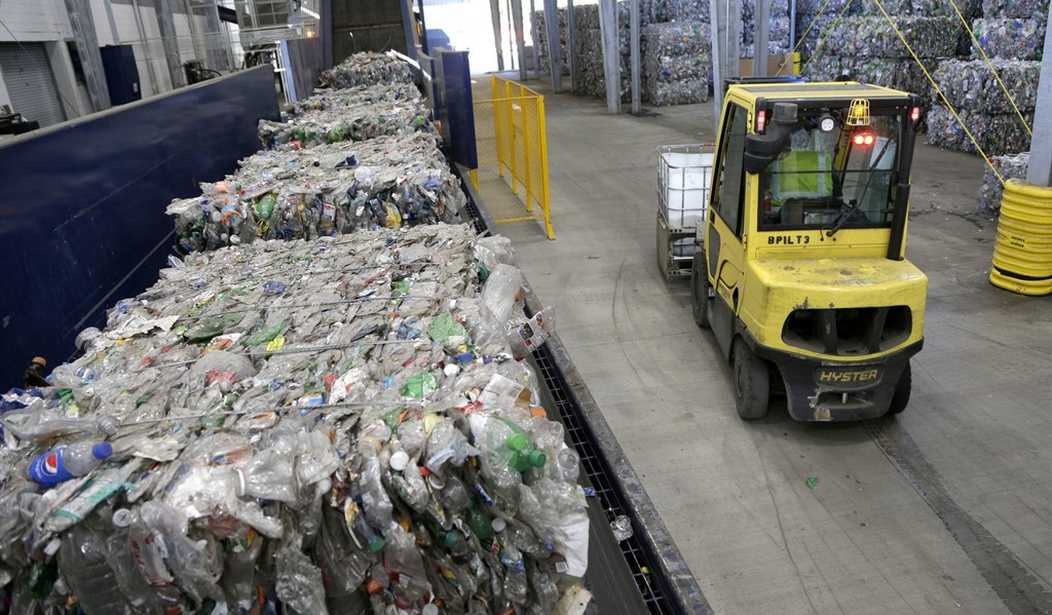Microplastics and “forever chemicals,” often found in plastics (so named because they don’t degrade), are everywhere — in the water supply, in food packaging, in the food supply, in cosmetics, in cookware, in human organs, in sponges — even in condoms. The long-term health effects of chronic exposure to these materials are only beginning to be understood.
Forget COVID, racism, and guns (yes, the latter two have been rebranded as public health issues); mark my words: microplastics, in the future, if society ever returns to sanity, will be recognized as the preeminent public health threat that they are.
Related: Corporate State Repackages Gun Violence as 'Public Health Crisis'
It’s certainly convenient, wrapping everything up in plastic wrapping for storage, shipping, or safekeeping — but at what cost, and, since plastic is relatively new in the grand arc of human civilization, do we have a grasp on the cost?
Posterity, again, will vindicate that plastic is far and away the most pressing public health issue of the modern era and, unless technology comes into existence in the future to neutralize its effects, we may rue the day we plastic-wrapped the world.
Via The Independent (emphasis added):
Melamine foam sponges used to clean households worldwide release trillions of microplastics each month, a new study has warned.
These sponges, known for their ability to remove even stubborn stains effortlessly, rely on their distinctive abrasive properties.
However, a new study published in the Environmental Science & Technology journal, estimates that fibres from these cleaning products release trillions of toxic microplastic particles globally each month, potentially impacting human health.
The sponges are made of a plastic polymer assembled into a soft, lightweight abrasive foam, making it ideal for making scrubby cleaning products.
But as they wear away with use, the foam breaks down into smaller pieces, releasing microplastic fibres (MPF) into sewer systems with each wash.
These toxic microplastics may be consumed by wildlife, making their way back to humans via the food chain.
They have been linked to several health complications in humans, including immune and endocrine system disruptions, as well as several types of cancers.
Microplastics appear especially detrimental to cardiovascular health, as researchers recently found a five-fold increased risk for individuals found to have these materials in their blood vessels.
Via Natural News (emphasis added):
Doctors have warned of potentially life-threatening effects of plastic pollution after finding a substantially elevated risk of stroke, heart attack and early death in people whose blood vessels were contaminated with microplastics.
Researchers in Naples examined fatty plaques removed from the blood vessels of patients with arterial disease and found that more than half had deposits contaminated with tiny particles of polyethylene or polyvinyl chloride (PVC)…
Those whose plaques contained microplastics were nearly five times more likely to suffer a stroke, heart attack or death from any cause over the following 34 months, compared with those whose plaques were free from plastic contamination.
Alarmingly, microplastics have even made their way into condoms and lubricants — not great news, since the skin on reproductive organs is exceptionally thin with high levels of blood vessels, meaning they are superhighways to introduce them into the blood supply.
Via The Guardian (emphasis added):
Several brands of condoms and lubricants contain alarming levels of toxic PFAS “forever chemicals”, including styles of Trojan and K-Y Jelly, new research finds.
The testing conducted by the Mamavation consumer advocacy blog comes just as researchers found human skin absorbs the chemicals at much higher levels than previously thought…
PFAS are a class of about 15,000 chemicals often used to make products resistant to water, stains and heat. They are called “forever chemicals” because they do not naturally break down, and are linked to cancer, liver problems, thyroid issues, birth defects, kidney disease, decreased immunity and other serious health problems.
PFAS are also considered to be reproductive toxicants and endocrine disruptors linked to low birth weight, reduced sperm counts, pregnancy-induced high blood pressure, infertility and shorter duration of breastfeeding.
Even if you went fully off-grid on a cabin somewhere in Montana, you still wouldn’t be able to fully eliminate microplastics and forever chemicals. But there are a few basic tactics you can use to reduce your overall exposure, expounded here.










